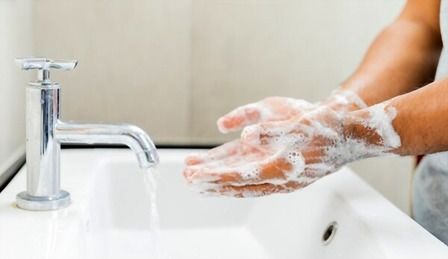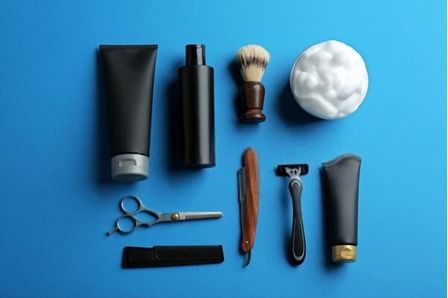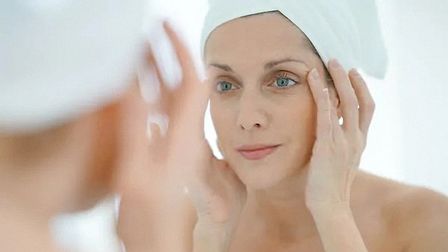Not only for women but the hair growth issues also do a matter for men. While weak hair is hard to style with a female, a bald head swallows the gentlemen’s pride. While people are rushing for chemical products to help their hair growth more healthily, we’ve found natural essential oil is an eco-friendly way for this.
4 Best Oil For Hair Growth And Thickness
Coconut Oil
Coconut oil is one of the most popular and affordable kinds of oil that you can easily find in any supermarket or beauty shop and get it without breaking your bank.
This is exactly “carrier oil”, according to Dr. Bridges, which means it supports many nutritious ingredients and importantly, essential oil to penetrate the skin. The coconut oil itself has big benefits in moisturizing your scalp, hence, reducing dandruff efficiently.
Besides, it avoids hair loss sufficiently by having natural anti-fungal and anti-bacterial properties as well as acting as an anti-inflammatory on your skin.
Which type of hair works best on it?
All hair types.

How to use
There are many ways to use coconut oil:
- By using it alone
- By mixing with other essential oil.
For the first method, simply use it as a hair mask. Wet your hair while taking a shower, mask coconut oil evenly on your scalp and hair and then, wait for 5 – 10 minutes. Wash it clearly afterward and use your hair wash as regularly.
Note: Don’t apply it too much because it will be more difficult to rinse later. Just measure the reasonable amount with your hair thickness.
It’ll give the best result if carried out 2 or 3 times/week.
For the second method, you can mix it with peppermint oil to stimulate hair growth or lemongrass to keep your scalp moisture balance. Or, lemongrass oil to prevent dandruff better.
Use it as a hair mask, the step-by-step instruction is similar to the first one.
Lemongrass Oil
For beginners, dandruff is one of the majorities making hair loss and weakness.
Why? – You might ask.
The most common “consequence” of dandruff is itchiness, especially when you’re sweat or your scalp is damped. This urges you to scratch like crazy. The damper the scalp, the itchier, the more you scratch it, which causes your scalp weaker and weaker.
As an obvious result, it makes your hair weaker and lost more.
Not to say that heavy dandruff causes an unaesthetic look as well as a lack of confidence, for both men and women.
The bad news is this common kind of scalp condition is hard to treat utterly since it relates closely to your hygiene process but the good is it’s pretty easy to help it.
While regular brushing and washing the hair should be applied to reduce old skin flake, you can mix lemongrass oil with your shampoo.

This kind of oil is well-known for antifungal and anti-inflammatory properties, which prevents perfectly dandruff and skin irritation. Therefore, creating a conducive environment for better hair growth.
Which type of hair works best on it?
Individuals who are suffering from dandruff and hair loss.
How to use
Before washing your hair, carefully brush it to get rid of as many crusty or scaly patches on your scalp as possible as this will help the mixture shampoo applied afterward works more efficiently.
Since lemongrass oil is a kind of essential oil, it shouldn’t be applied directly to your scalp but mix with one carrier oil, like olive oil or coconut oil, or with anti-fungal shampoo.
With cream or gel shampoo, the final mixture is tense and you can apply it on your hair like a hair mask for 5 minutes prior to rinsing it with water.
If you choose to mix lemongrass oil with olive oil or coconut oil, drop about 5 – 6 drops into a spray-headed container. Then, pour one ounce of coconut oil into it and shake evenly. Afterward, spray the mixture on your scalp 10 minutes before taking a shower.
While waiting, you can gently massage your scalp and hair to stimulate the process.
The second method is more convenient for busy individuals while the first one is more effective. For the best result, apply the method 2 – 3 times/week.
Note: The most arguable issue when using lemongrass oil is its smell. Some people like it while others don’t. If you’re sensitive to smell, kindly switch to another essential oil, like tea tree oil.
Tea Tree Oil

Unlike lemongrass oil, tea tree oil comes with a gentler and more addictive smell that also works as a nerve relaxant while you’re washing your hair.
While helping hair loss and dandruff-like the previous counterpart, tea tree oil can prevent the buildup of severe chemicals found in most nowadays hair products which strip hair follicle of much-needed nutrients.
This kind of essential oil also helps remove dead skin on your scalp, keeping the skin well-moisturized and cleaner and hence, boosting hair to grow healthily. Notice that tea tree oil won’t make your hair as thick as when using coconut oil, but at least, it keeps hair from falling out or breaking off.
Which type of hair works best on it?
People who have weak hair (like breaking off because of regular dying or bleaching), hair loss, and dandruff.
How to use
Mix one drop of tea tree oil with your regular shampoo or it’ll be better if switching to a specialized anti-dandruff shampoo. Lather this mixture evenly on your scalp and hair, wait for 5 minutes and then, rinse thoroughly with clean water.
If you’re suffering serious dandruff or super-weak hair, apply this method every day for 4 weeks. Afterward, 2 or 3 times/week is fine.
For people who don’t have dandruff but just want to boost healthy hair growth, this method might be what you’re after:
- 1 drop of tea tree oil : 10 drops of almond oil
Again, apply this mixture daily for the best results.
Castor Oil
Castor oil is one of the essential oil richest in omega-6 fatty acids that are renowned for hair growth acceleration. According to many reports, average hair growth of a healthy person can reach ½ inch length each month while with regular castor oil application, it can be up to 3 or 5 times quicker than that.
After several months of use, you will find your hair grow thicker noticeably.
For scalp infections, castor oil is known for an effective essential oil thanks to its antibacterial, antifungal, and antiviral properties.
If you’re suffering serious inflammation of hair follicles, like folliculitis, this also helps to fight against that.
While boosting and accelerating hair to grow, castor oil with its unusually high content of ricin-oleic acid can ensure better nutrition for hair follicles, maintaining their health through scalp’s blood circulation improvement.
Ricin-oleic acid can balance the pH of your scalp, on the other hand.
If your hair is a bit frizzy because of regular bleaching, dyeing and giving rough/weak hand-touch, this essential oil will support keratin to them and make them smoother with an addictively silky feel.
Which type of hair works best on it?
For people to want hair to grow quicker and thicker.
How to use
Lather some castor oil on your hair from the roots to the tips and keep massaging within 3 or 5 minutes. Like coconut oil, this is a thick density so don’t apply too much amount on your scalp, it will be really a matter when rinsing afterward.
After this step, leave it alone for 15 to 20 minutes or wear a shower cap and leave it overnight.
When rinsing, you might need to apply your shampoo a few times to wash it off thoroughly. Because of this inconvenience, we just highly recommend 2 times/week for busy individuals or more if you have time.

Or, you can use it as a conditioner on slightly damped hair for 30 minutes before shampooing, the oil will come off more easily.
Each time after using castor oil on your hair, try not using heat on them right then.
For people who want hair to regrow, you can mix castor oil with extra virgin coconut oil, sesame oil, and almond oil for better results, following this method:
- 1 tbsp. castor oil + 2 tbsp. sesame oil + 2 tbsp. sweet almond oil + 2 tbsp. extra virgin coconut oil.
It’s best to warm the mixture before use and lather for 60 minutes before shampooing your hair.
Conclusion
Above are 4 best oil for hair growth and thickness based on three elements:
- Affordability
- Ease to find
- Effectiveness
…that we can assure you will easily find and use them no matter where you’re living. We hope that the included instruction for each kind of oil is helpful enough to help you improve your hair growth.
Thanks for reading!




